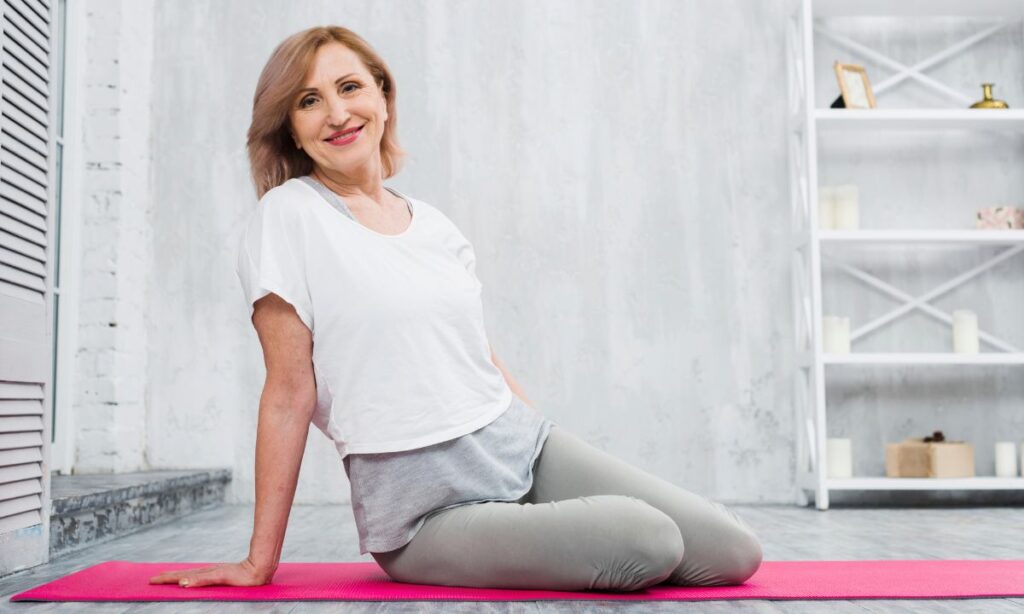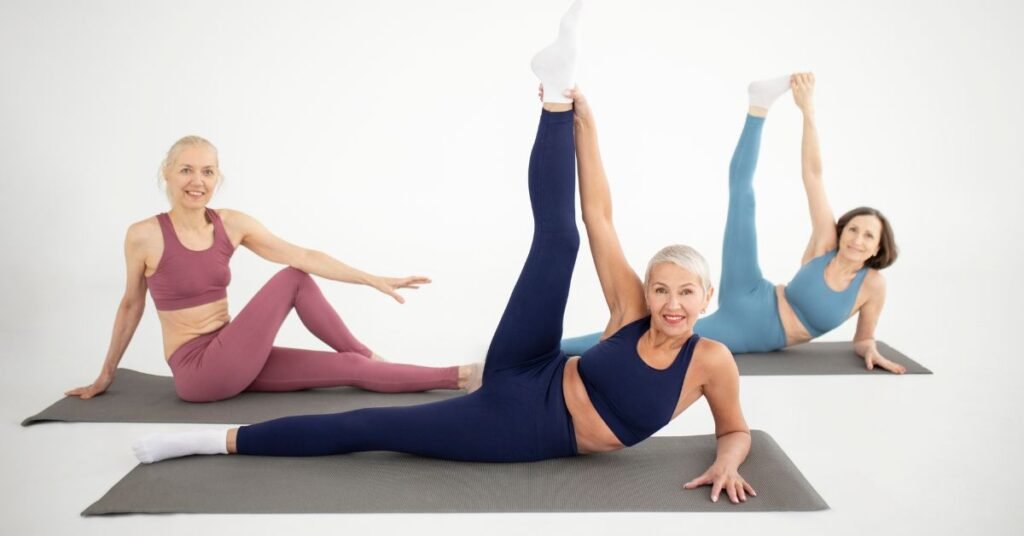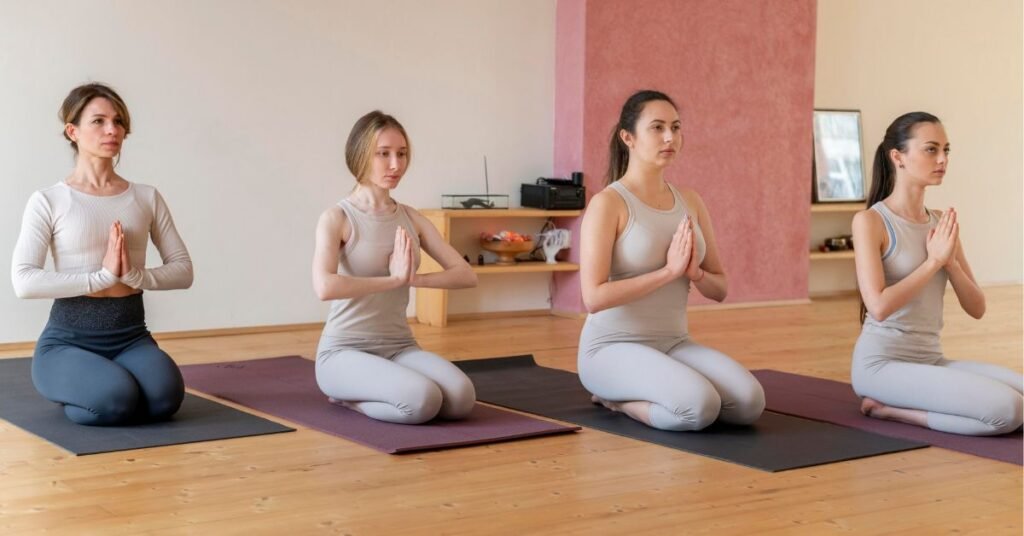Introduction
Yoga has been around for thousands of years, helping people find balance, strength, and inner peace. But did you know that yoga can also be a powerful tool for rehabilitation? Whether you’re recovering from an injury, or surgery, or managing a chronic condition, yoga offers a gentle, effective way to regain mobility and strength while nurturing the mind. In this blog post, we’ll dive into the benefits of yoga for rehabilitation, explore different techniques, and provide practical tips to get started. Let’s take a deep breath and journey into the healing world of yoga!
Why Yoga for Rehabilitation?
Yoga isn’t just about bending into pretzel shapes or meditating on a mountaintop (though that does sound nice). It’s a holistic practice that addresses the body, mind, and spirit. Here’s why yoga is an excellent choice for rehabilitation:
1. Gentle on the Body
Yoga focuses on gentle movements and mindful stretching, making it perfect for those recovering from injuries or surgeries. Unlike high-impact exercises, yoga allows you to work within your limits, reducing the risk of re-injury.
2. Improves Flexibility and Strength
Recovery often requires regaining flexibility and strength. Yoga’s slow, deliberate movements help lengthen muscles and build strength in a safe, controlled manner.
3. Enhances Mental Well-being
Recovery isn’t just physical—it’s mental too. Yoga’s emphasis on breathwork and mindfulness can reduce stress, anxiety, and depression, creating a positive mindset for healing.
4. Customizable for All Levels
Whether you’re a seasoned yogi or a complete beginner, yoga can be adapted to your specific needs and abilities. Chair yoga, restorative yoga, and gentle hatha yoga are just a few styles that cater to rehabilitation.
5. Encourages Mind-Body Connection
Healing requires more than physical effort; it demands a connection between the body and mind. Yoga fosters this connection, helping you become more aware of your body’s needs and limitations.
Conditions Benefiting from Yoga
Yoga can aid in the recovery of various conditions. Here are some of the most common:
- Back Pain: Yoga poses like Cat-Cow and Child’s Pose can relieve tension in the spine and strengthen supporting muscles.
- Arthritis: Gentle yoga can improve joint flexibility and reduce inflammation.
- Post-Surgery Recovery: Light stretching and breathing exercises aid in regaining mobility and reducing scar tissue.
- Mental Health: Practices like pranayama (breath control) and meditation can alleviate symptoms of anxiety and depression.
- Chronic Pain: Mindfulness and relaxation techniques help manage chronic pain conditions like fibromyalgia.
Readmore: How I Cured My Anxiety with Yoga
Readmore: 5 Yoga Practices to Support Trauma Recovery
Popular Yoga Styles for Rehabilitation
1. Restorative Yoga
This style uses props like bolsters and blankets to support the body in restful poses. It’s perfect for those needing deep relaxation and gentle stretching.
2. Chair Yoga
For those with limited mobility, chair yoga offers a modified practice that can be done seated or using a chair for support.
3. Hatha Yoga
A gentle introduction to yoga, focusing on basic postures and breathing techniques.
4. Yin Yoga
Targets deep connective tissues and improves flexibility with long-held poses.
5. Iyengar Yoga
Emphasizes alignment and uses props to make poses accessible to everyone.
Getting Started with Yoga for Rehabilitation
Starting yoga can be intimidating, especially if you’re dealing with an injury or chronic condition. Here are some tips to ease into your practice:
- Consult with Your Healthcare Provider: Always get the green light before starting any new exercise routine.
- Find a Qualified Instructor: Look for instructors experienced in therapeutic or restorative yoga.
- Start Slow: Begin with shorter sessions and gradually increase your time as your body adapts.
- Listen to Your Body: Pain is a no-go. If a pose hurts, skip it or modify it.
- Incorporate Breathing Exercises: Breathwork is an integral part of yoga and aids in relaxation and pain management.
Readmore: Yoga and Ayurveda: Natural Ways to Improve Digestion
Readmore: Inspiring Yoga Transformation Stories from Real People
Simple Yoga Poses for Rehabilitation
1. Cat-Cow Stretch (Marjaryasana-Bitilasana)
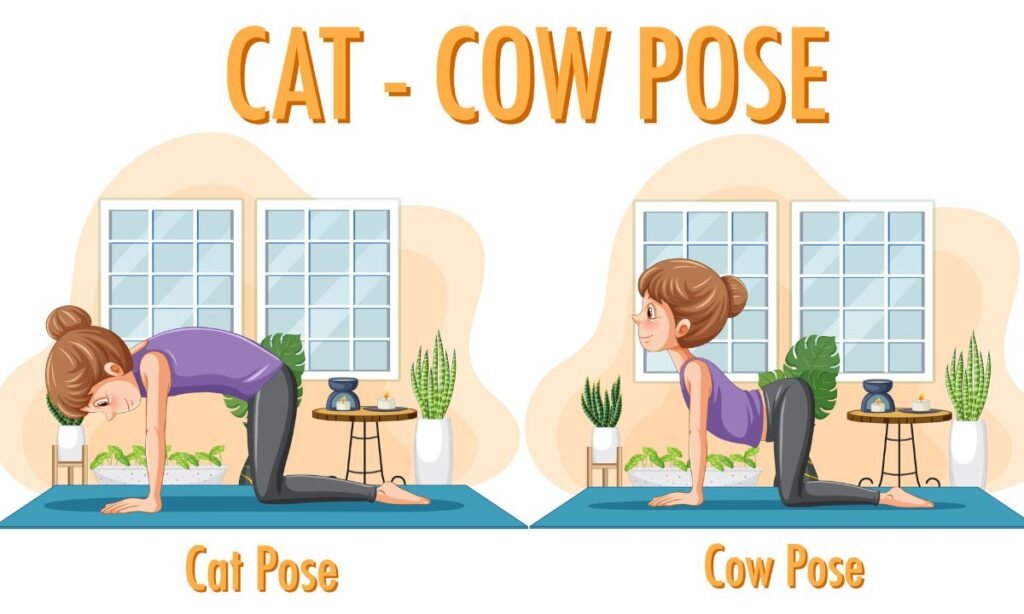
Gently warms up the spine and relieves back tension.
2. Child’s Pose (Balasana)
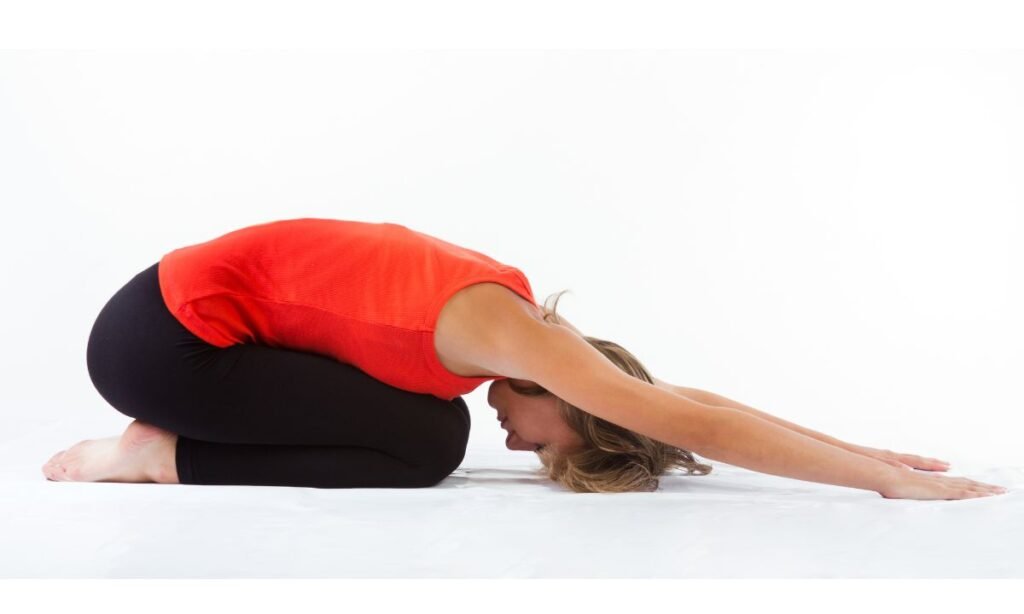
Offers a gentle stretch for the back and hips while promoting relaxation.
3. Supported Bridge Pose (Setu Bandhasana)
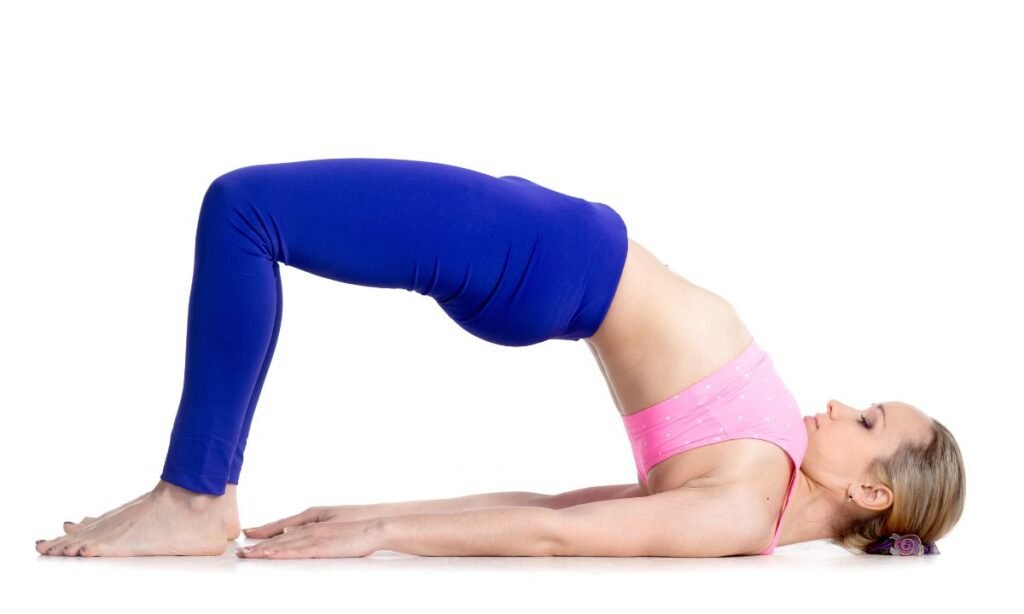
Strengthens the lower back and glutes, improving stability.
4. Legs-Up-The-Wall Pose (Viparita Karani)
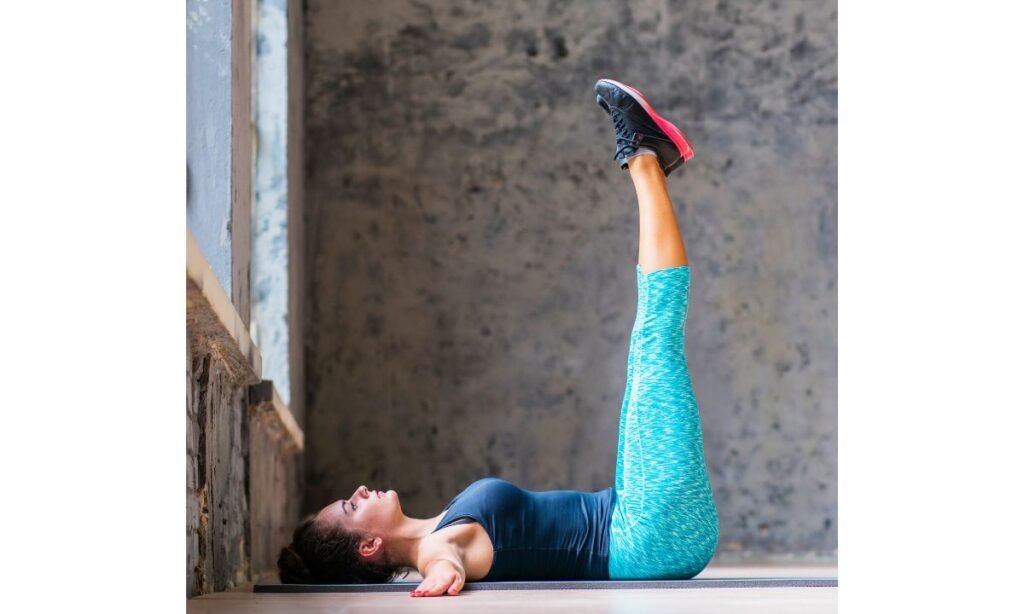
Reduces swelling in the legs and promotes circulation.
5. Seated Forward Bend (Paschimottanasana)
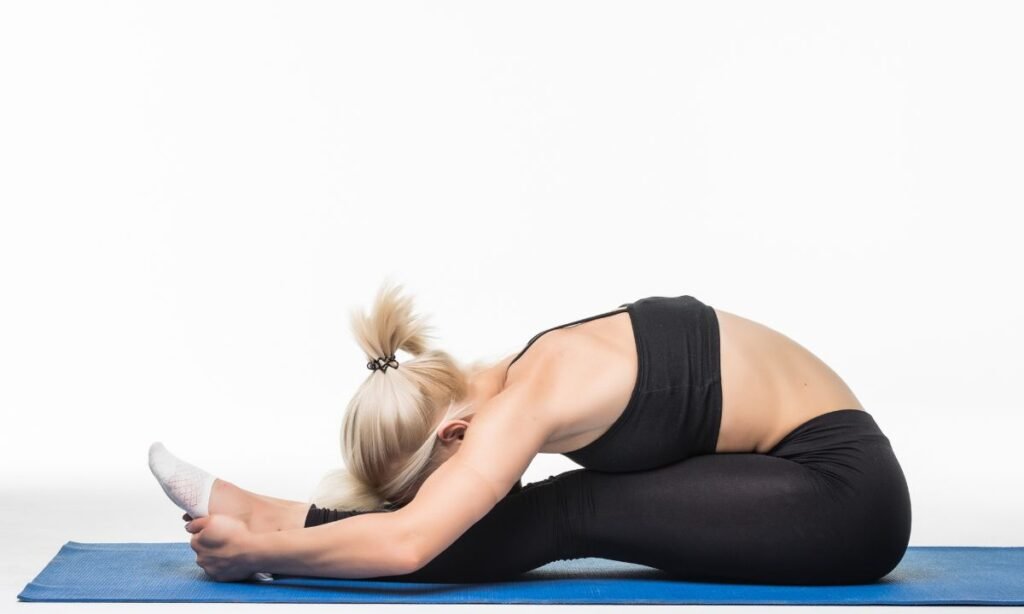
Stretches the hamstrings and lower back gently.
FAQs
Q1. Can I do yoga for rehabilitation if I have no prior experience?
Yes! Yoga can be modified for all experience levels. If you’re new to yoga, consider starting with a certified instructor who specializes in rehabilitation.
Q2. How often should I practice yoga for rehabilitation?
It depends on your condition and comfort level. Even practicing for 15-30 minutes a few times a week can be beneficial.
Q3. What should I wear for a rehabilitation yoga session?
Wear comfortable, breathable clothing that allows for movement. Avoid anything too tight or restrictive.
Q4. Can yoga replace physical therapy?
Yoga can complement physical therapy but should not replace professional medical treatment. Always follow your healthcare provider’s advice.
Q5. What if I feel pain during yoga?
Pain is a sign to stop. Modify the pose or take a break. Yoga should be gentle and pain-free.
Readmore: Half Lotus Pose Explained
Readmore: Fallen Triangle Pose
Conclusion
Yoga is more than just a workout—it’s a pathway to recovery, helping individuals heal physically and mentally. By integrating yoga into your rehabilitation journey, you can experience improved flexibility, strength, and mental clarity. So, unroll that mat and give yourself the gift of healing through yoga!
Ready to start your yoga journey? Grab a mat, take a deep breath, and find a local yoga class or online session tailored to rehabilitation. Your body and mind will thank you!

Sonu is a passionate yoga teacher with over 6+ years of experience helping individuals find balance, strength, and inner peace through the transformative power of yoga. As the creator of Pure Yoga Vibes, Sonu shares expert insights, inspiring practices, and a wealth of knowledge to support your wellness journey. Dedicated to creating a space for growth and mindfulness, Sonu’s mission is to make yoga accessible and enjoyable for everyone. For inquiries or collaborations, feel free to reach out at contact@pureyogavibes.com.
